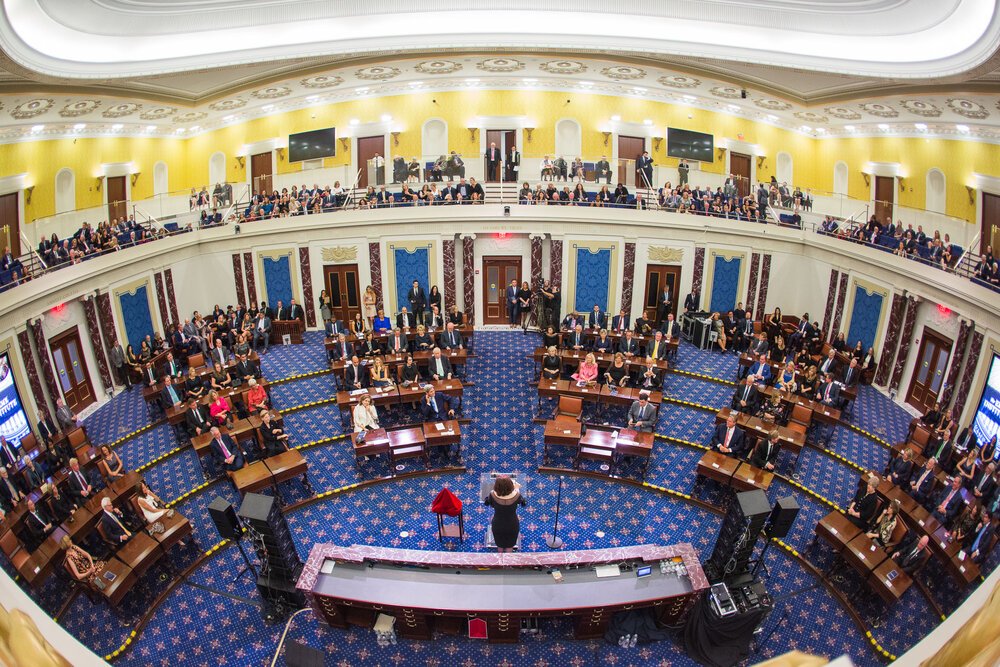Raise your hand if you’re familiar with the 17th Amendment. Maybe one of you? Alright, do you know what it’s about? No, it doesn’t have to do with giving women the right to vote. Prohibition? Closer, but not quite. The 17th Amendment replaced “by the legislature thereof” with “by the people thereof” in Article I Section III of the United States constitution, and required the direct, popular election of senators in every state of the union, rather than senators being elected by state legislators. A tremendous victory for democracy, right?
So thought the city of Troy. While we did get our beautiful wooden statue– something every eligible citizen could look at and enjoy, we also brought about our surrender of federalism. Ratifying the 17th Amendment lowered representation for minority groups in the legislative process, surrendered states rights to the federal government, and allowed for the immeasurable growth of the federal government. In other words, it was quite the Trojan horse.
When we elect our senators now, it’s an all-or-nothing situation where the majority wins. This would be nice, if the majority was truly the significant majority, instead of elections that are increasingly approaching 51/49 splits as happened in Arizona, Michigan and Georgia in the 2020 senatorial election. I believe that there is a better way to represent all Americans, rather than 51% of them. My goal is compromise.
I believe that there is a better way to represent all Americans, rather than 51% of them. My goal is compromise.
Under our current system, the losers have no advocate. For example, the Latino population of Arizona is 32% of the state’s population. If a vote for a senator was divided along ethnic distributions, the Latino population wouldn’t have a chance of winning, and the senator would have no obligation to vote on policies that would benefit them because he doesn’t need to rely on their vote for reelection. For all practical purposes, they wouldn’t exist in the Senate. If Arizona instead had the liberty to decide it’s own way of electing senators through the state legislature, representatives from Latino areas would be able to raise concerns about senatorial candidates. This would allow them to possess some degree of advocacy so they can confidently express the needs of their community in regards to their national representation.
When he was defending the original constitution, James Madison wrote that “a dependence on the people is, no doubt, the primary control on the government; but experience has taught mankind the necessity of auxiliary precautions.” This means that while power is ultimately derived from the people, we are still subject to corruption and abuse of our power, and we need the safety net of a constitutional republic that direct democracy cannot provide.
While power is ultimately derived from the people, we are still subject to corruption and abuse of our power, and we need the safety net of a constitutional republic that direct democracy cannot provide.
What we need to do in order to build this safety is restore the power to elect senators to the state legislatures, and encourage them to require a two-thirds majority vote rather than a simple majority in order to confirm the appointment, like we used to do for cabinet and court appointees in the Senate. With this change in place, local elections will become much more influential and minority groups throughout America will likely have an elected official representing them in the confirmation process for the senatorship. This will change the outcome of elections for the better by returning governing power and political agency to the States, incentivizing the nomination of professionals, and it will be a symbolic first step towards taming the federal leviathan and restoring the federalist system.
There is the concern that a repeal of the 17th Amendment will allow for corruption and favor sharing to influence senate elections. While I am sympathetic, there is no definitive history of corruption plaguing the system before 1913. In the 130 years and 1,180 senatorial elections prior, fraud had only been credibly alleged 15 times, and found seven times. On the contrary, popularizing the elections all but invites corruption in. For the 2020 senate elections, a cumulative $1.1 billion was spent on campaigns. The campaigns themselves are run by a mixture of professional marketers, pollsters, and electioneering specialists creating effective advertisements, rather than focusing on nominating meritorious candidates.
While it won’t be a groundbreaking, revolutionary change- which in this case I believe slow, gradual change is for the best–repealing the 17th Amendment is a necessary first step towards restoring federalism and delivering liberty back to the people. The horse has been opened, but the city hasn’t fallen yet.
